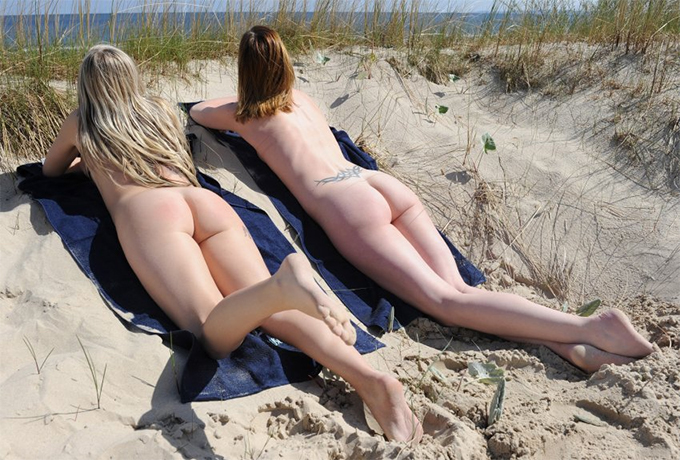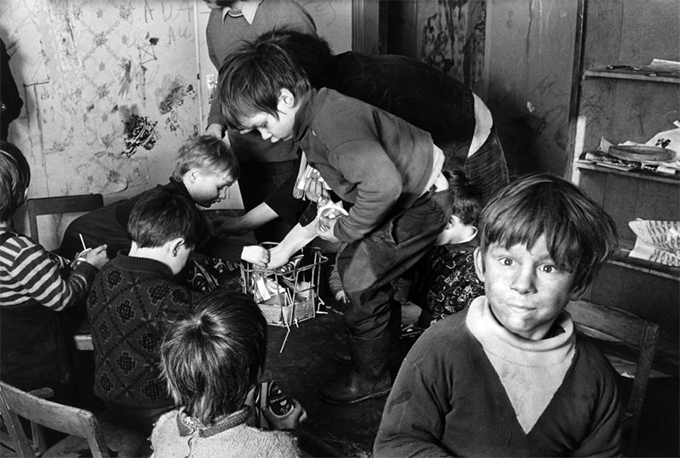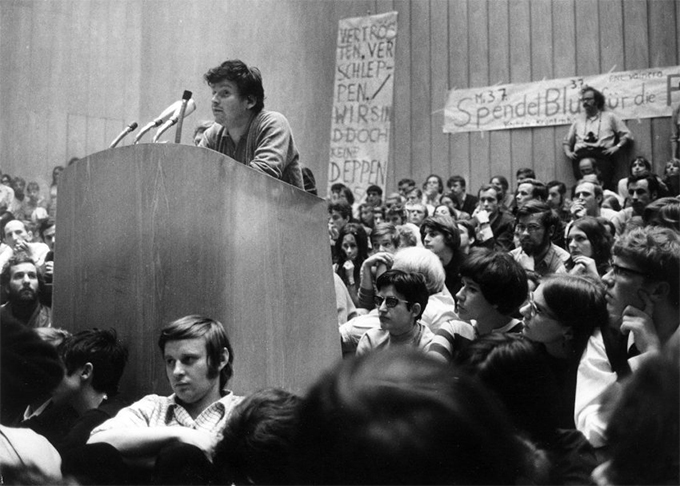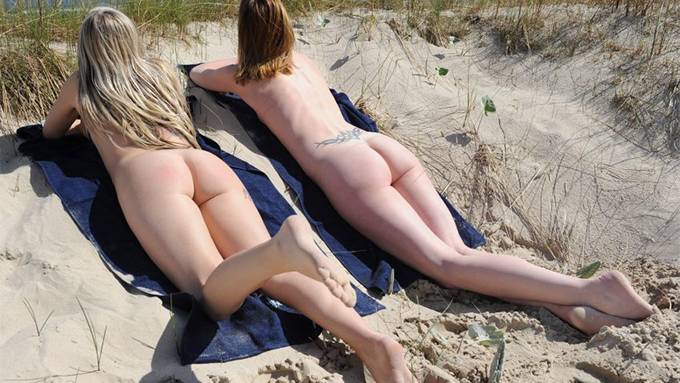The Sexual Revolution and Children: How the Left Took Things Too Far
Source: spiegel.de

The 1968 generation pushed a new and permissive view of sex and public nudity. Nude sunbathing is still popular in many parts of Germany, particularly in former East Germany. But some took it too far when it came to the sexual education of children.
Others found it noticeably more difficult to deal with the situation. The records of a Stuttgart Kinderladen from December 1969 include an account by a mother who suddenly found several children reaching under her skirt. When one of the boys began pulling her pubic hair, the woman wasn't sure how to react. On the one hand, she didn't want to seem inhibited, but on the other hand, the situation was unpleasant for her. "That hurts," she finally said, "I don't like that."
An account by the sociologist Monika Seifert, who described her experiences in the "Parents' Collective of the Frankfurt Children's School" in the magazine Vorgänge
(excerpts of which later appeared in SPIEGEL in the fall of 1970), reveals how difficult it was for the Kinderladen
parents to eventually decide between their own ideological expectations and their sense of right and wrong.
In the account, Seifert critically asks herself why, in her project, "no cases of attempted, direct, purposeful sexual activity between a child and an adult were observed." It should be noted that she sees this as a shortcoming, not a success. As a mother, Seifert concludes that the "inhibitions and insecurities of the adults" were probably to blame for their passivity, and that the children were likely "suppressing their sexual curiosity in this regard because of the subconscious reactions of the adults."
'An Incredibly Erotic Game'
Does what happened in a number of the Kinderladen qualify as abuse? According to the criteria to which Catholic priests have been subjected, it clearly does, says Alexander Schuller, the sociologist. "Objectively speaking, it was abuse, but subjectively it wasn't," says author Dannenberg. As outlandish as it seems in retrospect, the parents apparently had the welfare of the children in mind, not their own. For the adherents to the new movement, the child did not serve as a sex object to provide the adults with a means of satisfying their sexual urges. This differentiates politically motivated abuse from pedophilia.
Here, too, the distinctions become blurred. How should we react when Cohn-Bendit writes, in his memoirs, about "little, five-year-old girls who had already learned to proposition me?" It wasn't the only time the Green politician raved about his experiences with children. In a largely unnoticed appearance on French television on April 23, 1982, Cohn-Bendit, a member of the European Parliament today, said the following:
"At nine in the morning, I join my eight little toddlers between the ages of 16 months and 2 years. I wash their butts, I tickle them, they tickle me and we cuddle. … You know, a child's sexuality is a fantastic thing. You have to be honest and sincere. With the very young kids, it isn't the same as it is with the four-to-six-year-olds. When a little, five-year-old girl starts undressing, it's great, because it's a game. It's an incredibly erotic game."
Cohn-Bendit later claimed that his portrayals in the book were meant as a provocation. Whether or not one believes his assertions, the development of the Greens in the 1980s shows that their nonchalant talk about sex with young children eventually attracted real pedophiles.
No Age Restrictions
In the wake of the emerging gay movement, so-called Pedo groups soon appeared. Taking their cue from homosexuals, they also claimed that, as a minority, they were entitled to certain rights. The best known of these groups was the "Indian Commune" in Nuremberg, an "alternative living project" of adults of children. The "Indians," brightly painted and vocal, appeared at the first Green Party convention, in the southwestern German city of Karlsruhe in 1980, to drum up support for their cause, which they called "free sex for children and adults."
The Greens were not long immune to the argument that the government should not limit the sexuality of children. At its convention in Lüdenscheid in 1985, the Greens' state organization in the western state of North Rhine-Westphalia argued that "nonviolent sexuality" between children and adults should generally be allowed, without any age restrictions. "Consensual sexual relations between adults and children must be decriminalized," the "Children and Youth" task force of the Green Party in the southwestern state of Baden-Württemberg wrote in a position paper at about the same time. Public protests forced the party to remove the statement from the document.

Children playing in an anti-authoritarian Kinderladen in Bochum in 1971. Many such daycare centers in this period sought to educate children to be free of sexual inhibitions. This often led to questionable practices including fondling with adults.
During this time, no other newspaper offered pedophiles quite as much a forum as the alternative, left-leaning Tageszeitung, which shows how socially acceptable this violation of taboos had become in the leftist community. In several series, including one titled "I Love Boys," and in lengthy interviews, men were given the opportunity to describe how beautiful and liberating sex with preadolescent boys supposedly was. "There was a great deal of uncertainty as to how far people could go," says Gitti Hentschel, the co-founder and, from 1979 to 1985, editor of Tageszeitung. Those who, like Hentschel, were openly opposed to promoting pedophilia were described as "prudish" -- as opposed to freedom of expression. "There is no such thing as censorship in the Tageszeitung," was the response.
Carte Blanche
One of the few leaders of the left who staunchly opposed the pedophile movement early on was social scientist Günter Amendt. "There is no equitable sexuality between children and adults," Amendt said, expressing his outrage over the movement. Alice Schwarzer, the founder of the political women's magazine Emma, also spoke out against the downplaying of sex with children and defined it as what it really was: outright abuse.
Amendt recalls how he was disparaged as a reactionary in flyers and articles. "There was an outright campaign against Alice and me at the time," he says. It wasn't until the mid-1990s that this horrific episode came to an end. In 1994, the Pedos appeared in Tageszeitung for the last time, and even that publication recognized that intercourse with little boys was no different than with little girls, who, thanks to the women's movement, have long been deemed worthy of protection.
The revolutionaries of the late 1960s are still a long way from confronting this part of their history. When questions about the activities of members of the movement of 1968 were raised in connection with the abuse cases at the Odenwald School, the apologists for the movement were quick to give themselves a carte blanche.

In his 1975 autobiographical book "Der Grosse Basar" (The Great Bazaar), Green Party politician Daniel Cohn-Bendit describes his experiences as a teacher in a Kinderladen in Frankfurt. When the children entrusted to his care opened his fly and began stroking his penis, he writes, "I was usually quite taken aback. My reactions varied, depending on the circumstances."
"Such accusations are also part of an attempt to denounce social progress," sexologist and 1968 veteran Gunter Schmidt wrote in the Frankfurter Rundschau. "On the whole, the social changes that are associated with the number 1968 were more likely to have led to the prevention of abuse."
This is a very mild way of recalling the past. It is certainly not shared by everyone who was part of the leftist educational experiments of the day.
Source: spiegel.de






















